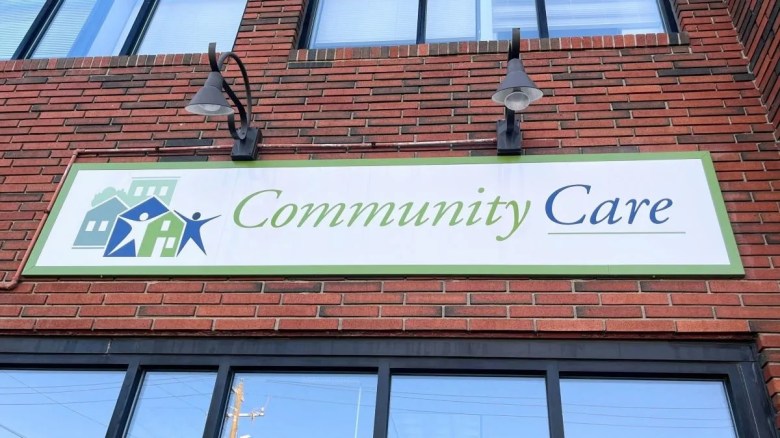Lifestyle
Maine’s Child Visitation Services Fail to Meet Essential Targets

Maine’s largest contractor for child visitation services significantly underperformed in 2024, scheduling only 10% of required visits within the mandated seven-day timeframe. The organization, Community Care, fell short of its contractual obligations with the Maine Department of Health and Human Services (DHHS), which required at least 90% of referrals to be arranged within a week.
In the previous year, Community Care scheduled just 30 out of 286 referrals for supervised visits, according to an analysis by the Maine Monitor. These visits are essential after children are removed from their homes due to concerns of abuse or neglect, as they help maintain critical bonds between parents and children, which is necessary for future reunification.
Maine law mandates that visits occur within a week of removal, typically requiring supervision to ensure the safety of the child. The visits are crucial for both the parents, who are adjusting to the loss of custody, and the children, who face the trauma of separation from their families. The relatively low scheduling rate by Community Care raises concerns about the well-being of families navigating this challenging process.
Despite its poor performance metrics, the DHHS renewed Community Care’s contract in December 2023, which included an increase in the agency’s hourly rates for supervised visit services. The new contract allows Community Care to bill the state up to $292,791 per month, totaling around $3.5 million annually.
The data indicates that many parents and children are left waiting weeks or even months for their visits. The median wait time between a referral and a scheduled visit was approximately 29 days. In comparison, other contracted providers in the state performed significantly better. For example, the AMHC, which serves more rural areas, arranged visits within the required timeframe 48% of the time.
DHHS spokesperson Alisa Morton acknowledged the service deficiencies, stating, “That current providers are not providing expected services is of serious concern to the Department.” She emphasized the ongoing monitoring of these services to ensure compliance with state requirements. However, it remains unclear what measures, if any, the DHHS is taking to address Community Care’s shortcomings or to recover taxpayer funds.
Experts in child welfare have voiced concerns that the failures of Community Care not only hinder reunification efforts but also increase the burden on DHHS caseworkers. With contractors not meeting expectations, caseworkers often have to intervene to arrange visits themselves, adding to their already overwhelming workloads.
Tom Farkas, from the Maine Service Employees Association, highlighted the challenges faced by caseworkers, noting that they often encounter providers who either lack availability or fail to respond to requests for scheduling visits. This inefficiency can lead to delays in compliance with court orders related to child custody.
The Maine Child Welfare Services Ombudsman also reported in its annual review that inadequate visitation services are exacerbating the workload for DHHS staff, potentially prolonging the time required for reunification. Christine Alberi, the ombudsman, stated that frequent visits are vital for both children in custody and parents seeking to reunite with them.
Some judges have expressed frustration over the lack of visitation resources. In a 2023 ruling, Cumberland County District Court Judge Jennifer Nofsinger criticized the DHHS for allowing a mother and child to have only one visit over three months, stating that such limitations are “simply not acceptable.”
In contrast, other providers have managed to meet or exceed expectations. The Penquis Community Action Agency, serving Penobscot and Piscataquis counties, scheduled 93% of its visits within the required timeframe, showcasing a stark difference in performance among visitation providers in Maine.
The state is currently evaluating its relationships with these service providers. Contracts with Community Care, AMHC, and Penquis are set to expire on September 30, 2024, and DHHS is working on temporary amendments to extend them while preparing to issue a request for proposals for visitation services in early 2026.
As the situation stands, the ongoing challenges within Maine’s child welfare visitation services highlight the essential need for accountability and improvement in the system, ensuring that children and parents can maintain their vital connections during difficult times.
-

 Science1 week ago
Science1 week agoResearchers Challenge 200-Year-Old Physics Principle with Atomic Engines
-

 Politics1 week ago
Politics1 week agoNHP Foundation Secures Land for 158 Affordable Apartments in Denver
-

 Health1 week ago
Health1 week agoNeuroscientist Advocates for Flag Football Until Age 14
-

 Health1 week ago
Health1 week agoFDA Launches Fast-Track Review for Nine Innovative Therapies
-

 Lifestyle1 week ago
Lifestyle1 week agoLongtime Friends Face Heartbreak After Loss and Isolation
-

 World1 week ago
World1 week agoTroops to Enjoy Buffalo Chicken, Thai Curry in 2026 MREs
-

 Business1 week ago
Business1 week agoMaine Housing Inventory Surges to Post-Pandemic High
-

 World1 week ago
World1 week agoGlobal Military Spending: Air Forces Ranked by Budget and Capability
-

 Politics1 week ago
Politics1 week agoIsraeli Air Strikes in Lebanon Kill One, Wound Seven Amid Tensions
-

 Politics1 week ago
Politics1 week agoMassachusetts Lawmakers Resist Audit After Voter Mandate
-

 Top Stories1 week ago
Top Stories1 week agoUnforgettable Moments: The Best Victoria’s Secret Performances
-

 Business1 week ago
Business1 week agoSpirit Airlines Cuts Workforce with Furloughs for 365 Pilots









